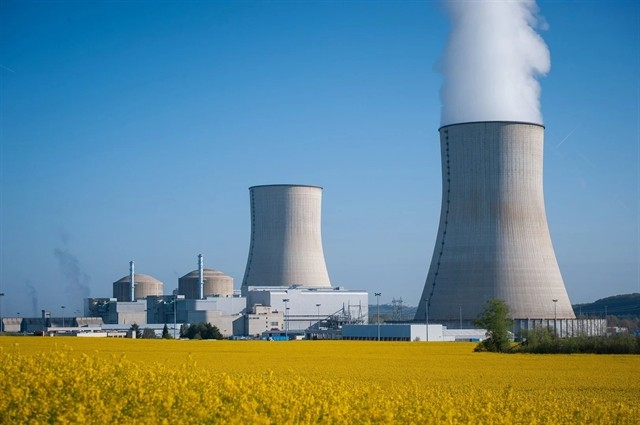The Ministry of Science and Technology says it is in favour of restarting nuclear energy projects in Việt Nam, in response to renewed interest from the central Government in this power source.
According to Phạm Quang Minh, Deputy Director of the Việt Nam Atomic Energy Institute (under the sci-tech ministry), the resumption of nuclear power projects in Việt Nam aligns with sustainable energy development policies, which will ensure both energy security and the commitment to reducing carbon emissions, aiming to achieve carbon neutrality by 2050,
The Government Standing Committee recently asked the Ministry of Industry and Trade to study other countries’ experiences in developing nuclear energy to serve Việt Nam’s own future implementation, sparking fresh life into this controversial energy source that was once discarded in the country.
Amid global efforts to combat climate change and balance CO2 emissions, as pledged at the 26th and 28th United Nations Climate Change Conferences (UN COP26 and COP28), a green energy transition is essential for restructuring Việt Nam’s power sector, according to Minh.
Currently, many countries are developing nuclear power in combination with renewable energy.
Nuclear power plays a crucial role in providing baseload (i.e. the minimum amount of electricity supplied to the power grid over the course of the day), ensuring reliability and stability for the power system.
According to the official, nuclear energy produces nearly zero CO2 or other greenhouse gas emissions (roughly the same as hydro and wind power) and will be an important component in the power structure of many countries in the future.
“Nuclear power is considered a key solution for ensuring energy security in Việt Nam, especially given the rapidly increasing demand for electricity,” Minh said.
“Alongside renewable energy sources, nuclear power can help balance energy supply, ensuring long-term stability for the economy and society.”
In the event of restarting nuclear power projects, applying advanced nuclear technologies and ensuring the highest safety standards would be crucial, he noted.
Furthermore, the development of nuclear power would create a high-quality workforce to drive the nation’s progress, the nuclear energy expert added.
He added: “It also offers an opportunity to significantly promote science and technology, particularly in the application of nuclear techniques and radiation technologies in sectors such as healthcare, agriculture, industry, and environmental resources.
“It will also stimulate foundational industries crucial for national development, including mechanical engineering, metrology, automated control, chemical technology and metallurgical materials.
“The Việt Nam Atomic Energy Institute believes that researching and considering the restart of nuclear power projects to support socio-economic development is both important and necessary at this time.”
In the past, Việt Nam has had a plan to build a 4,000 MW nuclear power plant in the south-central province Ninh Thuận, but due to various differing opinions, especially following the disaster at the nuclear plant Fukushima in Japan in 2011 and the then ‘economic conditions of the country’ per a government official, the project was shelved in 2016.
Six years later, during discussions on this issue, the National Assembly’s Economic Committee suggested reconsidering the development of this energy source based on a comprehensive, scientific and accurate assessment of the current energy situation and future supply-demand projections.— VNS
